
While the past two years of the COVID-19 pandemic have proved challenging for schools and students across Tennessee, the recent 2021-2022 Tennessee Comprehensive Assessment Program (TCAP) results show positive progress for Tennessee students. Despite that progress, White and noneconomically disadvantaged students are recovering learning faster than their non-White and economically disadvantaged peers.
In January 2021, a special legislative session on education focused on helping students and schools recover from the impact of the pandemic. The general assembly passed legislation establishing summer learning camps as well as the Tennessee Literacy Success Act. The benefits of these actions are beginning to show as 2022 TCAP results show promising recovery — particularly in English Language Arts (ELA).
ELA Scores Surpass Prepandemic Rates, Math Scores Show Promising Recovery
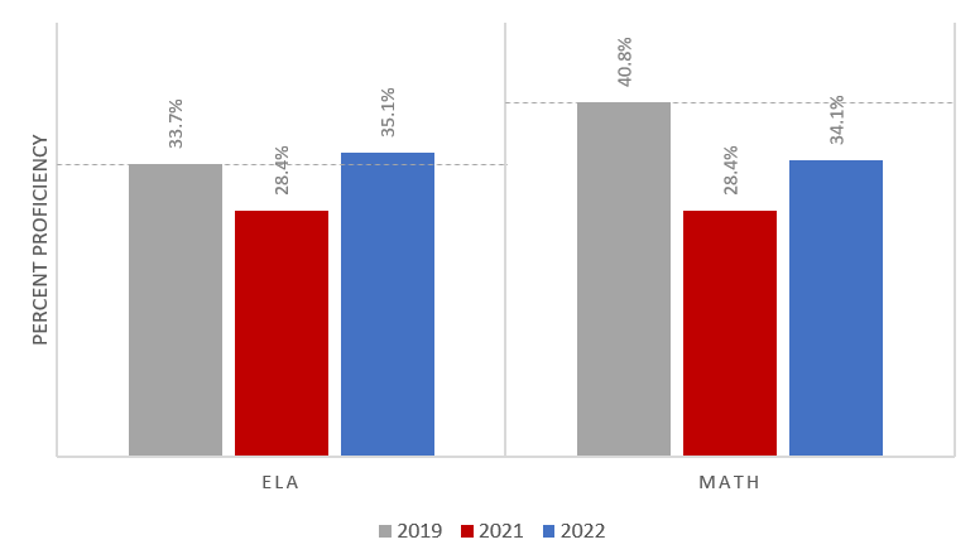
From 2019 to 2020, there were significant drops in student achievement in ELA and math, with math taking the greatest hit: a 12-point decrease in overall proficiency. Though ELA and math recovered by similar amounts this year, the initial decrease in math proficiency leaves much work ahead to help students reach prepandemic levels.
Highest Performers Improve, Struggling Students Fall Further Behind In ELA
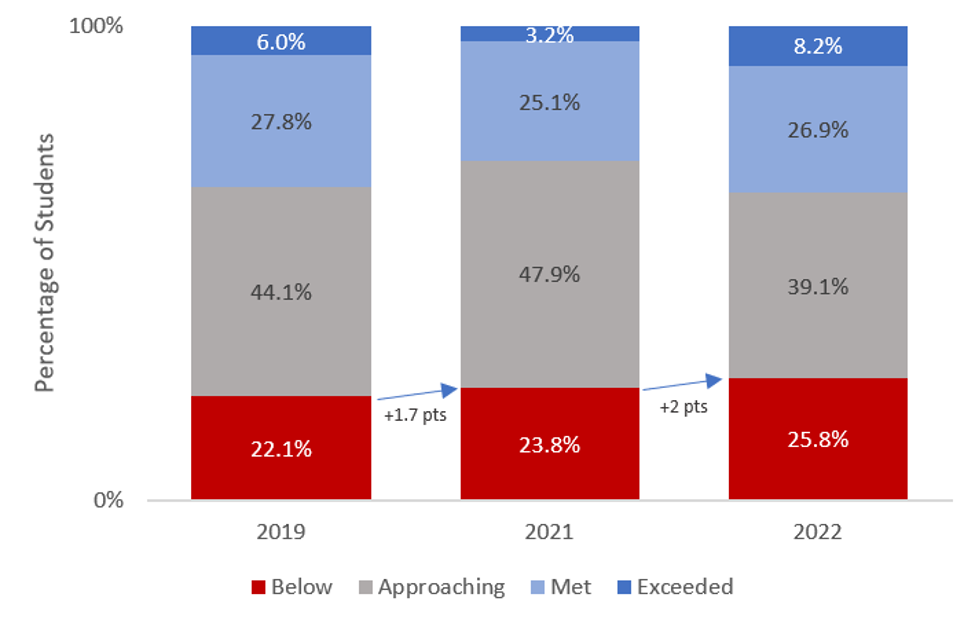
The number of students scoring proficient in ELA surpassed prepandemic rates. However, this progress cannot overshadow that struggling students are falling further behind. This can be seen in the consistent increase in students scoring below expectations since 2019. The increased proficiency rate is primarily driven by White and noneconomically disadvantaged students. White, Hispanic, and Black students saw similar proficiency declines in 2020; however, Black and Hispanic students are not recovering as quickly as their White peers. Hispanic students are 19 points behind White students and Black students are 23 points behind White students. Tennessee must focus on serving students with the greatest needs to narrow achievement gaps in the future.
Nearly 50,000 Third-Graders Are At Risk Of Being Retained
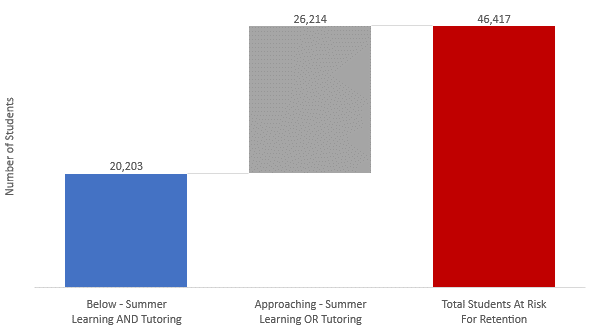
Though third-grade ELA performance is approaching prepandemic success rates, only 36 percent of students are proficient. The new third-grade retention law requires students scoring in the lowest two performance categories on ELA assessment to receive additional support that includes summer learning camp and tutoring. With this law in place, many students are at risk of being retained, posing major capacity implications for district tutoring programs. Tennessee’s continued focus on strong foundational reading skills is crucial to improving literacy rates. Through high-quality instruction we can help more students reach proficiency in third-grade ELA and beyond.
Across Student Groups, Grade 7 Math Proficiency Approaches Prepandemic Rates
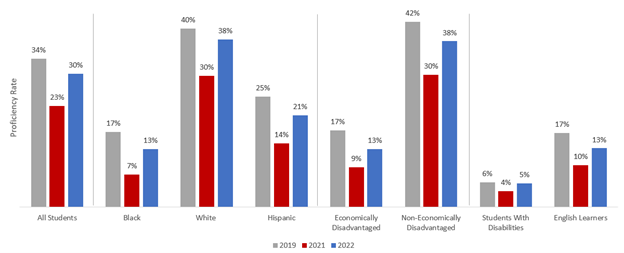
Seventh-grade math proficiency is improving but has not yet reached prepandemic levels. White and noneconomically disadvantaged students saw the greatest recovery compared to their peers, while achievement gaps between Hispanic students and Black students and their White peers each increased by 2 percentage points.
Despite Improvement, More Students Are Below Proficient In Algebra I Compared To Prepandemic Levels
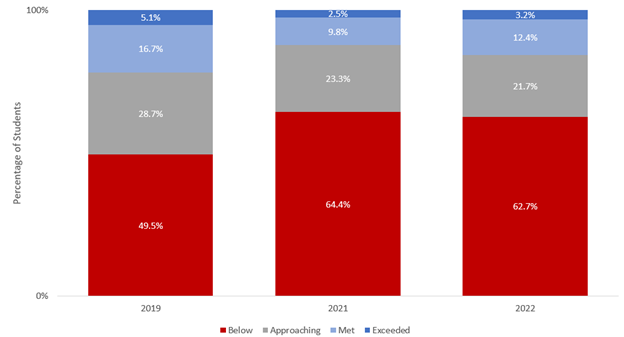
Student performance in Algebra I has increased slightly since 2021 but has not yet reached prepandemic levels. More than half of students in Algebra I are still scoring below expectations — this presents significant concerns for college readiness. Proficiency in Algebra I is predictive of postsecondary outcomes, so we must do more to ensure all K-12 students are prepared for success in college and career.
Tennessee students have made important progress this year after significant disruptions from the pandemic. ELA proficiency rates have surpassed prepandemic rates and math proficiency rates are improving. This progress should be celebrated while remembering there is more work to be done in order to best serve students. To ensure continued student recovery and ultimate success for all students, we must maintain a focus on high-quality interventions and high-quality instruction.
Alexis Parker is SCORE’s senior data and research analyst. Rachel Kramer is a SCORE graduate fellow.
